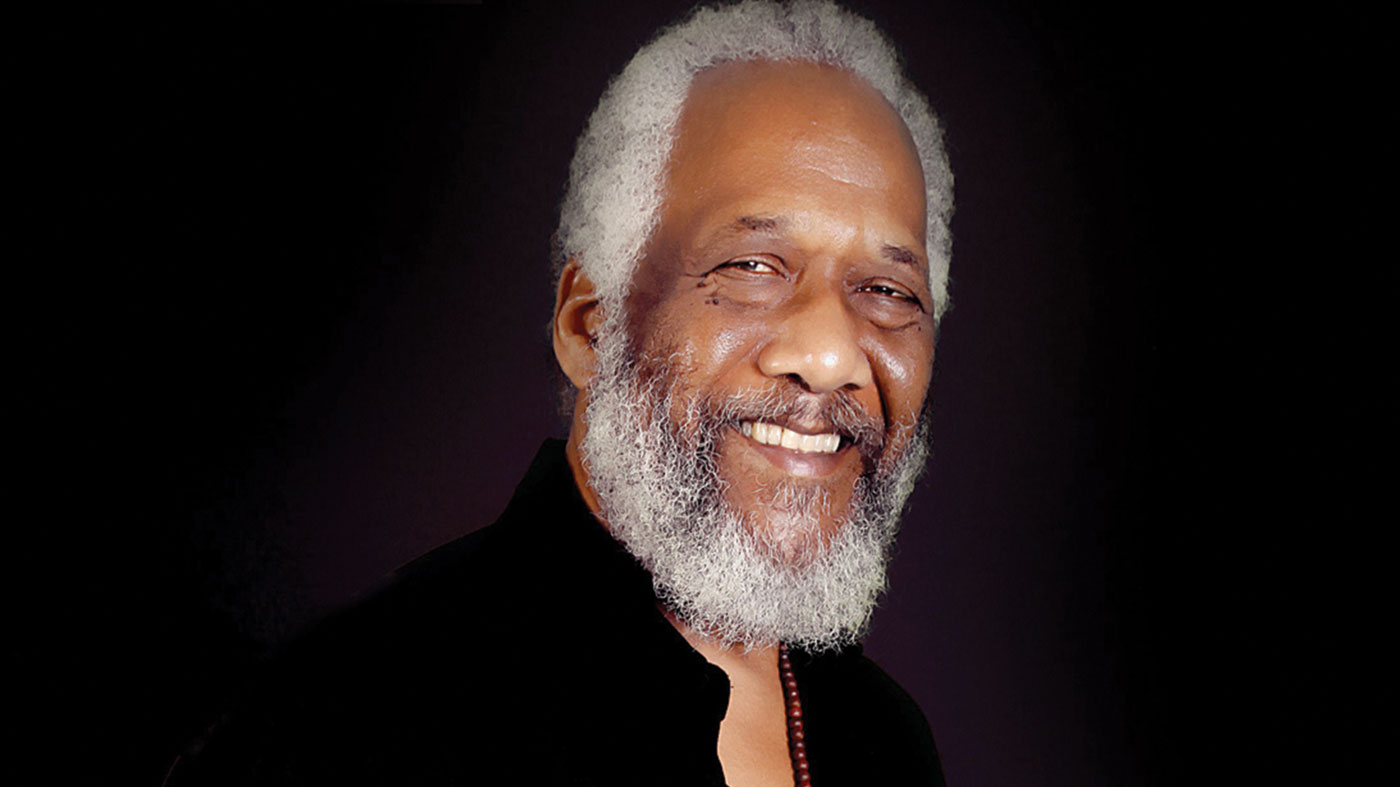Chuck Rainey: “I certainly feel like I’ve got company when I’ve got a bass on me”
The great session bassist discusses his unique career

Chuck Rainey’s name is synonymous with some of the biggest hits of the last 50 years. From Aretha Franklin to Steely Dan, Chuck has laid down the low end on some of the world’s most iconic albums.
We had the pleasure of discussing his incredible career with the man himself while he was teaching as a professor at last year’s Warwick Bass Camp.
After one of his classes specialising in improvisation, I sit down with Chuck and he tells us: “It’s hard to use the right descriptive word. For example, with the word ‘improvisation’, people misuse it - because if you improvise a bass-line that doesn’t mean that you’re necessarily improving it, you are just adding your smile to it.
"The average young person goes too far. I suggest that you just go a little bit more, because sometimes a little bit is more.”
If a young player doesn’t really love to play, then they are going to suffer, because they don’t get paid, the road is long
He continues: “For the last 25 years I’ve been looking at my playing and thinking what works and what doesn’t work.
"A part with too many notes doesn’t work: it gets in the way. In the rhythm section we’re usually together - we go down the same street - so we’re together if it’s wrong, but as the bass player you have more stability if you’re right, because the bass is the foundation. Underneath this building is a slab of concrete holding it up - that’s the bass.”
In his class, Chuck focused on jazzing up a bass-line while maintaining a solid groove, asking his students to participate by playing a simple I-V-VIII sequence over a static chord and then adding slight nuances and syncopations to it.
Get the MusicRadar Newsletter
Want all the hottest music and gear news, reviews, deals, features and more, direct to your inbox? Sign up here.
He also had some invaluable advice for any player who aspires to make it as a full-time musician, and that is to put your heart into it.
“A bass is an inanimate object, but it has energy because you put energy into it,” he said. “If a young player doesn’t really love to play, then they are going to suffer, because they don’t get paid, the road is long, your gig gets cancelled or whatever other reason.
"However, if you love to play, then those things don’t bother you as much as the person who is just working for the money. If you love something, it pays you back. I love music and I love playing the bass, and because I love it, I don’t have to suffer.”
New York nights
Chuck eases back into his chair and tells us a story involving his own struggles as a young musician.
“I was playing in New York City, and quite a few times you’d play but you wouldn’t get paid for whatever reason. Being young and staying in a hotel or whatever, if you didn’t have money for the room, they’d put a lock on your door and you couldn’t get in! So I’d have to ride the train all night to the flat of a friend of mine who would let me stay there.”
During my career, if I was ever lonely or I needed attention, I would just think about my bass or about music
He adds: “None of us got paid! We would play, say, 30 songs, and if one of those songs was great, that’s what kept me alive and happy. I’d just remember that one song because I love music.
"A lot of people get angry if they don’t get paid, but anger brings nothing but further frustrations. The music should come first - if you don’t love to do this, then do something else.”
As you can see, Chuck has a very emotional connection not only with his instrument, but with music as a whole. He tells us: “During my career, if I was ever lonely or I needed attention, I would just think about my bass or about music. I could sit for hours just thinking of my favourite song and then I’d be okay. I certainly feel like I’ve got company when I’ve got a bass on me.”
Take a look at the amazing Xotic Chuck Rainey XPJ-1T signature model , and you’ll see what he means.
Asked about his affiliation with the Warwick Bass Camp, he says: “I do two bass camps a year, but the Warwick Bass Camp is different because they bring people here from all walks of life.
"The professors [tutors] have attained a lot of success in the industry, and we all say the same thing - we just say it from our perspective.
“Younger people have to understand that there’s no one way to do anything. It depends on who you are and how you are. Some people talk too much, some people don’t talk enough, some people are too shy, some people are too bold, but they all want to go to this building here and they get here by going different ways.
“You don’t have to play a Warwick instrument to come to this camp; you don’t have to play a Warwick amplifier. Just about all my career I’ve been teaching or doing bass camps, I always talk about not going too far. But still you have to learn - I’m still learning. I’m still a student of the bass.”


“I’m beyond excited to introduce the next evolution of the MT15”: PRS announces refresh of tube amp lineup with the all-new Archon Classic and a high-gain power-up for the Mark Tremonti lunchbox head
“These guitars travel around the world and they need to be road ready”: Jackson gives Misha Mansoor’s Juggernaut a new lick of paint, an ebony fingerboard and upgrades to stainless steel frets in signature model refresh







![PRS Archon Classic and Mark Tremonti MT 15 v2: the newly redesigned tube amps offer a host of new features and tones, with the Alter Bridge guitarist's new lunchbox head [right] featuring the Overdrive channel from his MT 100 head, and there's a half-power switch, too.](https://cdn.mos.cms.futurecdn.net/FD37q5pRLCQDhCpT8y94Zi.jpg)

